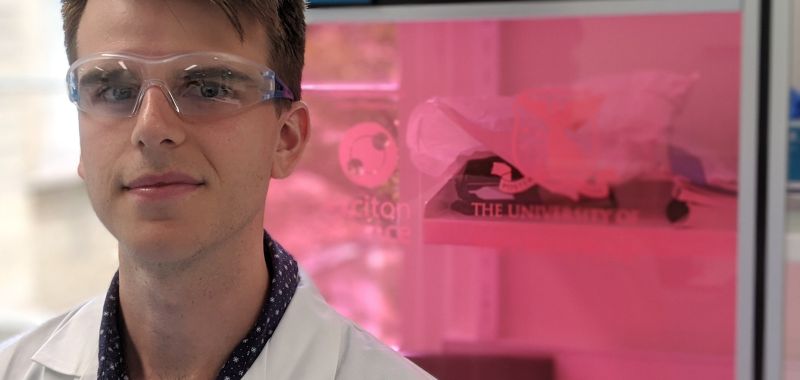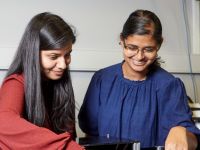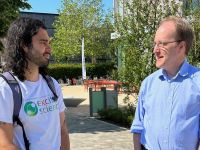
Ben Tadgell appointed STEM Ambassador
Ben Tadgell, a researcher within the ARC Centre of Excellence in Exciton Science, has been appointed as a STEM Ambassador by Science and Technology Australia, and will be working with Mr Peter Khalil MP, Member for Wills, to bridge the gap between science and government in Australia.
A final-year PhD student at The University of Melbourne, Ben is part of a team of chemists, physicists and engineers developing brand new materials for solar power, efficient lighting and chemical sensing.
In his own research, Ben designs chemical sensors using nanotechnology. These sensors harness light energy in a very specific and controlled way, which will allow us to detect when there are toxic levels of common pesticides in the air.
Speaking about his appointment, Ben said: “The role is acting as a link between science and politics.
“I want to understand what the role of science in government is, and how they interpret the science we do and implement that into useful policies.
“I’m excited to be the one who gets to talk to them and discuss what it is that a scientist actually does: What the day-to-day activities and principles are, what a scientist actually researches, how they research it and what their motivations are.”
Exciton Science is a collaboration of academia and industry focused on innovative research and delivering better means to manipulate the way light energy is absorbed, transported and stored. The Centre also provides businesses with unique insight into renewable energy generation and advanced materials manufacturing processes.
“I’d like to show Peter what we do in Exciton Science, and why we do it,” Ben said.
“A lot of the research going on in Exciton Science is very relevant to pressing political decisions that need to be made with regards to investing in renewable energy and what technologies should be invested in. That’s what we do, we work on these novel technologies to determine if they could actually be good replacements for what we have now.”
Ben is hopeful that through his role, he can communicate to both politicians and the public the vital role that scientific research plays in informing our decision making.
“I’m really interested in the intersection of policy and science,” he said.
“It’s really important for policy to be able to understand science as a means of informing the best decisions with regards to global warming, public health with coronavirus, pollution. Scientific literature is the data which then should inform how you make decisions.
“I am passionate about politicians having the means to communicate with scientists. And the science literacy of the public is also important, to appreciate how modern scientific research does play a really important role.”







